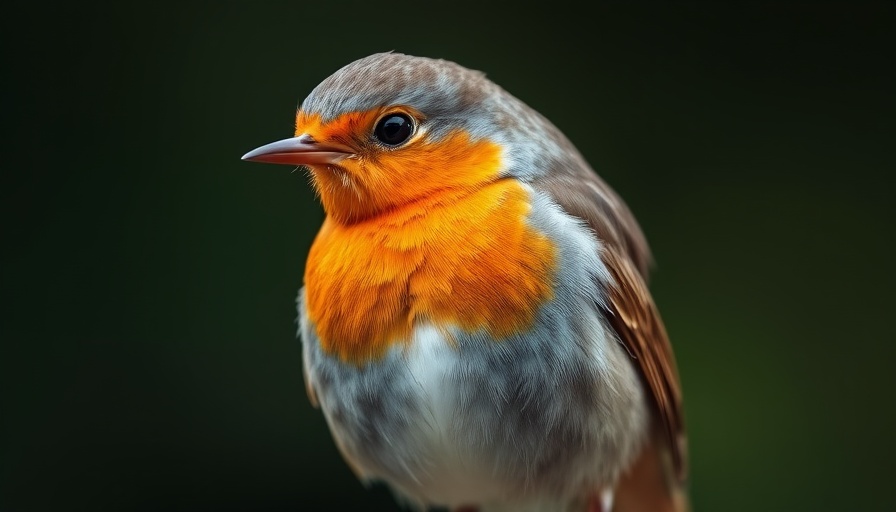
Why Feeding Robins Matters to Our Ecosystem
As the seasons shift, our feathered friends begin to depend heavily on the generosity of locals to survive and thrive. The plight of robins and other birds is more poignant as they face threats from habitat destruction, climate change, and dwindling food sources. By feeding robins, especially during key periods like fledgling season, homeowners can play a significant role in sustaining these essential members of our ecosystem. Simple acts like scattering cooked pasta on your bird table can contribute to a larger movement of supporting local wildlife.
Simple, Affordable Bird Food Choices
Many homeowners feel overwhelmed by the idea of feeding birds, often believing it’s a luxury that requires special mixes from garden centers. However, the RSPCA breaks this myth by suggesting common kitchen staples that can effectively nourish birds without straining your budget. Items like cooked pasta, leftover rice, boiled potatoes, and unsalted cheese make excellent fodder for robins and other garden visitors.
Knowledge is power, and understanding what birds can and cannot eat can make your efforts even more impactful. Avoid raw pasta, which can cause digestion problems, and instead offer cooked alternatives. This not only keeps our birds healthy but also aligns with a sustainable living practice—reducing waste by repurposing leftovers.
Creating a Safe Feeding Environment
While providing food is crucial, maintaining a clean feeding space can't be overlooked. The importance of hygiene in bird feeding has become increasingly emphasized, especially with the RSPB's recent actions regarding feeding station cleanliness. Homeowners should ensure that any uneaten food is removed daily to prevent bacterial growth and spread of diseases among birds. Regularly cleaning feeding stations not only helps birds but also keeps your garden looking tidy and inviting.
What Fledglings Need for Growth
Young robins, or fledglings, are particularly vulnerable and require ample nutrition to thrive as they learn to forage. Offering a variety of foods—including fruits, seeds, and peanut butter (unsalted)—can aid in their development. By understanding the dietary needs of these birds during this critical time, you can foster a supportive environment that encourages their survival and growth.
Engaging with Your Community Through Bird Feeding
Participating in the act of feeding robins can foster greater connections within the community. Sharing your experiences or learning tips from local gardening forums enriches this effort, allowing others to join in the cause of supporting wildlife. It's more than just a hobby; it’s a collective initiative to nurture our local environment and strengthen community bonds in the process.
Observing and Appreciating Wildlife
As Londoners, creating wildlife-friendly gardens not only beautifies our surroundings but also creates opportunities for connection with nature. Observing robins and other birds can lift spirits, foster appreciation for wildlife, and encourage sustainable living practices. Such initiatives can pave the way toward a greener city while enriching lives through the beauty of nature.
As we embrace these practices, we invite others to join us in this heartwarming endeavor to support our local robins. By spreading the word and sharing tips with friends and neighbors, you can cultivate a nurturing movement that not only benefits wildlife but also enhances our quality of life in the community. So, let's roll up our sleeves, prepare our tables, and get started on feeding our feathery friends!
In conclusion, feeding robins is more than a seasonal task; it’s a gesture of care towards our natural environment. By making simple, informed choices, everyone can contribute to the survival of these beautiful birds and cultivate a thriving ecosystem right in our backyards.
 Add Row
Add Row  Add
Add 




Write A Comment